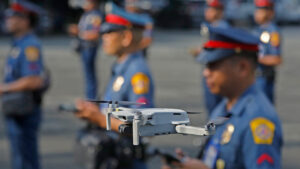
Philippines bats for rules on ethical use of autonomous weapon systems
THE PHILIPPINES is pushing for the creation of international guidelines on the ethical use of autonomous weapon systems powered by artificial intelligence (AI), according to the Department of Foreign Affairs (DFA), saying their improper use could risk innocent lives.
“The Philippines supports the development of ethical rules for the responsible use of such technologies through a coherent and effective global governance structure, building on existing international treaties and the work of the United Nations (UN),” Foreign Affairs Secretary Enrique A. Manalo said in a speech at the meeting on the Indo-Pacific Perspectives on Autonomous Weapons Systems in Makati City.
The Philippines is working with 14 other countries on a draft protocol and roadmap that will outlaw fully autonomous weapon systems Under the Convention on Conventional Weapons.
An autonomous weapon is programmed to kill a specific target. The weapon is deployed into an environment where its AI searches for the target using sensor data such as facial recognition, according to autonomousweapons.org.
Mr. Manalo said automated weapon systems pose risks to peace since they are “machines that can operate without meaningful human control, run by algorithms that are empowered to undertake decisions involving human life or death.”
Envoys and experts from 30 countries are participating in the discourse on the ethical and responsible use of autonomous weapons.
The first regional meet on lethal autonomous weapons will be held on Dec. 13 and 14.
“The discourse is not just a conversation about technology; it’s a critical dialogue about the ethical and moral implications of humanity’s future,” Foreign Affairs Assistant Secretary Maria Teresa T. Almojuela said in a statement.
In September last year at the UN General Assembly, President Ferdinand R. Marcos, Jr. called on the international community to come up with governance structures to prevent the weaponization of unmanned weapon systems.
He said the Philippines is eyeing a nonpermanent seat in the 15-member Security Council, saying the country is qualified due to its peace-building efforts.
The elections for new members in the council will be held in 2026.
Last month, the UN General Assembly adopted a resolution calling on the international community to address the challenges and concerns autonomous weapon systems bring to global and regional security.
“We are now aiming to shape the trajectory of international discourse on autonomous systems,” Mr. Manalo said.
“Our discourse must account for our society’s values and priorities, and it must be informed by an appreciation of regional dynamics and actors.” — John Victor D. Ordoñez



